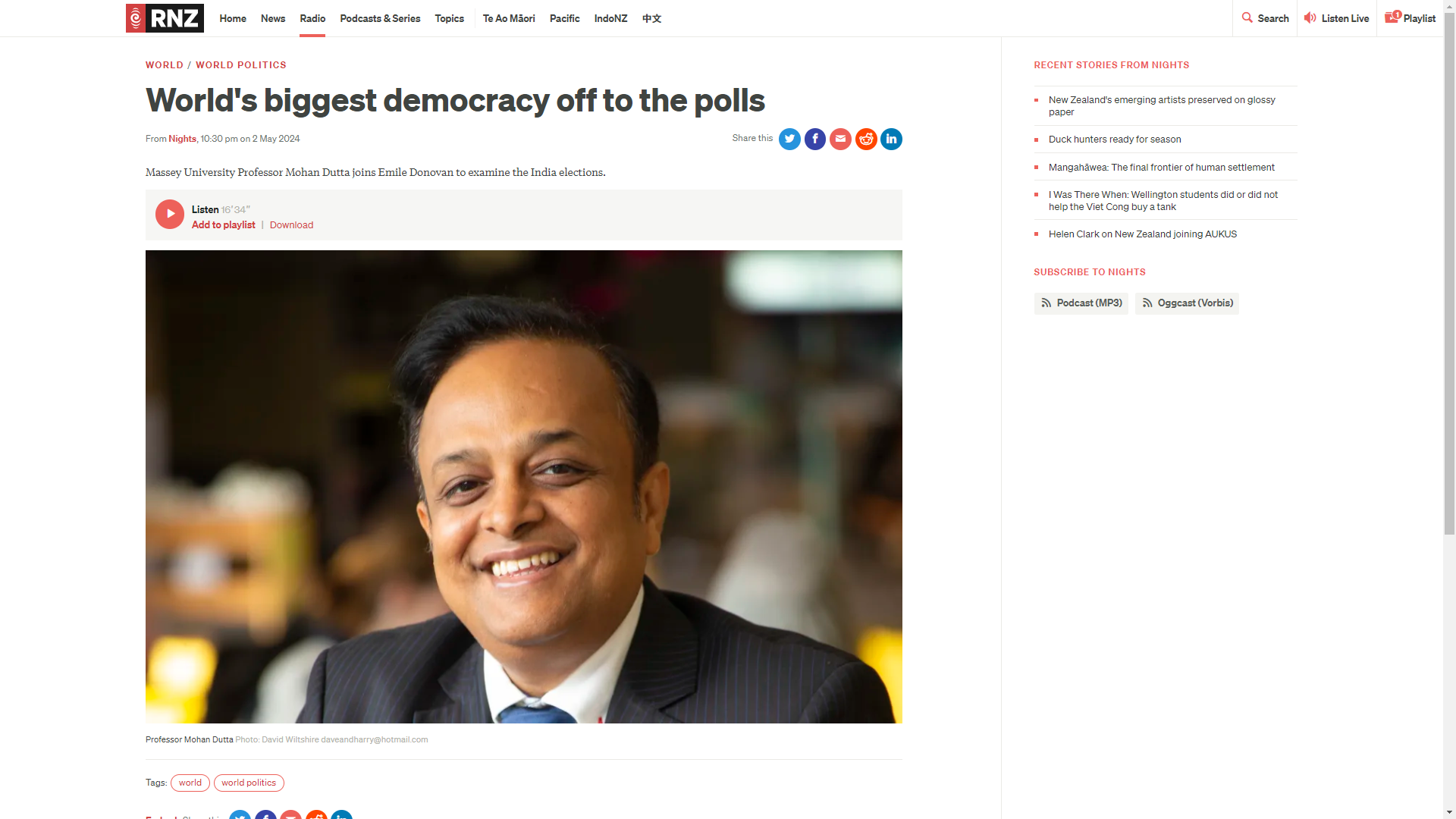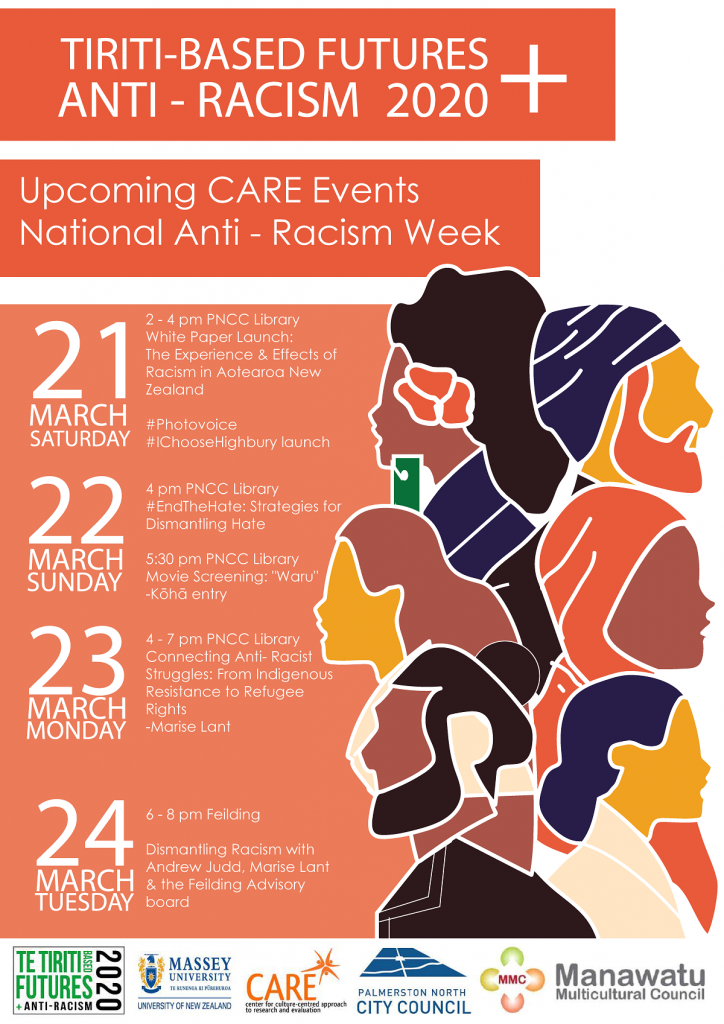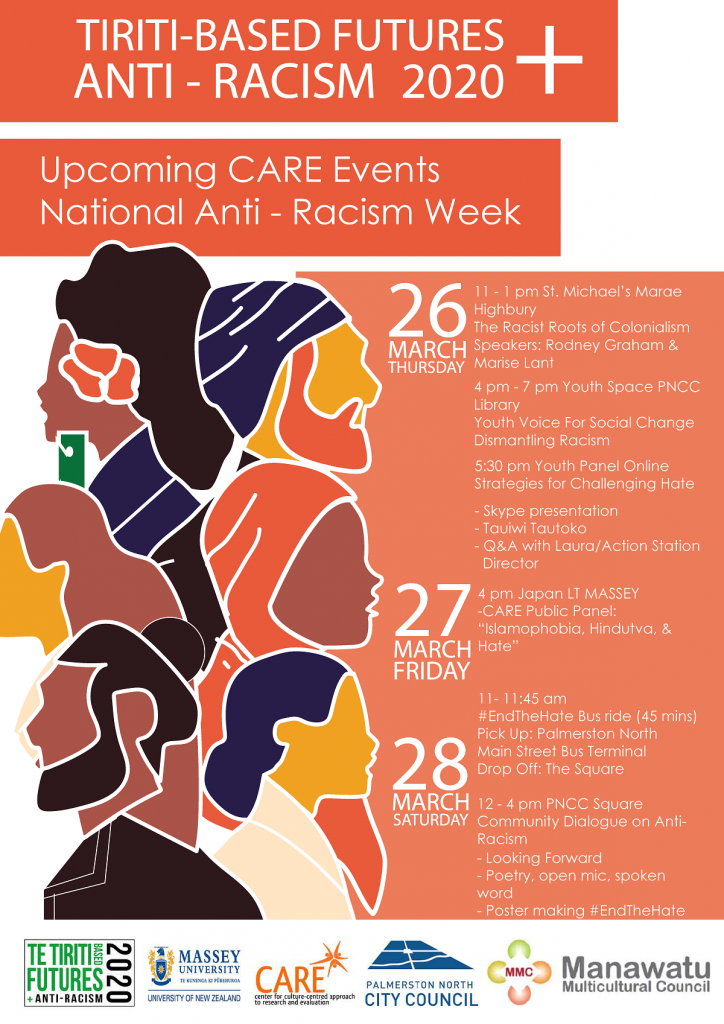“Breaking the Silences: India Pakistan Conflict.”
Dr. Fatima Junaid, Massey Business School, will bring her research on violent extremism and trauma in conversation with CARE Director Professor Mohan Dutta.
Friday, May 16, 2025
8 p.m.
On CARE YouTube Channel: CARE Massey – YouTube



